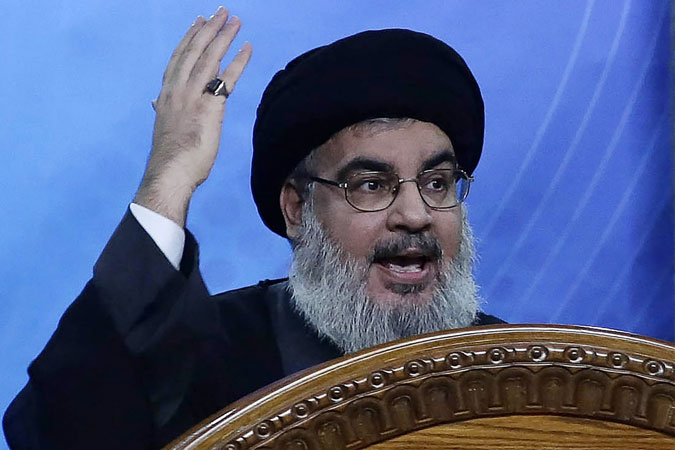 Lebanon’s Hezbollah confirmed on Saturday that its leader Sayyed Hassan Nasrallah was killed and vowed to continue the battle against Israel.
Lebanon’s Hezbollah confirmed on Saturday that its leader Sayyed Hassan Nasrallah was killed and vowed to continue the battle against Israel.
Israel said earlier that it had killed the Hezbollah leader in an airstrike in Beirut’s southern suburbs a day earlier, in what would be a devastating blow to the group as it reels from an escalating campaign of Israeli attacks.
Nasrallah’s death marks a major blow not only to Hezbollah but also to its alleged backers in Iran. He was a leading figure in the Tehran-backed “Axis of Resistance”, helping to project Iranian influence across the Middle East.
Iran, which arms and finances Hezbollah, said a senior member of its Revolutionary Guard Corps was killed in the same strike. IRNA news agency reported General Abbas Nilforoushan, deputy commander of the Guards’ operations, died in the strike that killed Nasrallah.
“Sayyed Hassan Nasrallah, Secretary General of Hezbollah, has joined his great, immortal martyr comrades whom he led for about 30 years,” Hezbollah said in a statement.
It said he was killed with other group members “following the treacherous Zionist strike on the southern suburbs” of Beirut.
AFP journalists heard a passer-by scream “Oh my God!”, and women weeping in the streets after Hezbollah announced the news.
Hezbollah said it would continue its battle against Israel “in support of Gaza and Palestine, and in defence of Lebanon and its steadfast and honourable people”.
It did not say how Nasrallah was killed.
Hezbollah’s Al-Manar TV began airing verses from the Holy Quran after his death was announced.
The Israeli military said in a statement that Nasrallah was eliminated in a “targeted strike” on the group’s underground headquarters under a residential building in Dahiyeh – a Hezbollah-controlled southern suburb of Beirut.
It said he was killed along with another top Hezbollah leader – Ali Karaki – and other commanders.
“The strike was conducted while Hezbollah’s senior chain of command were operating from the headquarters and advancing terrorist activities against the citizens of the State of Israel,” it claimed.
The Israeli military “eliminated […] Hassan Nasrallah, leader of the Hezbollah terrorist organisation”, Israeli army spokesperson Avichay Adraee wrote in a statement on X.
“Hassan Nasrallah will no longer be able to terrorise the world,” the Israeli military said in a post on X on Saturday.
Late on Friday, a source close to Hezbollah told Reuters that Nasrallah was not reachable.
In Tehran, posters of Nasrallah were erected bearing the slogan “Hezbollah is alive”.
Iran’s foreign ministry spokesman Nasser Kanani posted on X that Nasrallah’s “sacred goal will be realised in the liberation of Quds (Jerusalem), God willing”.
Earlier, Iran’s supreme leader Ayatollah Ali Khamenei condemned what he called Israel’s “short-sighted and stupid policy”, without referring to Nasrallah’s fate. Israel’s five hours of continuous strikes on Beirut early on Saturday followed Friday’s attack, by far the most powerful by Israel on the city during the conflict with Hezbollah that has played out in parallel to the Gaza conflict for nearly a year.
Reuters journalists heard more than 20 airstrikes in Beirut before dawn on Saturday and more after sunrise. Smoke could be seen rising over the city’s Hezbollah-controlled southern suburbs, known as the Dahiyeh.
Friday’s airstrike on Dahiyeh shook Beirut. A security source in Lebanon said the attack – a quick succession of massively powerful blasts – had left a crater at least 20 meters deep.
Thousands of people have fled the area since Friday’s attack, congregating in squares, parks and sidewalks in downtown Beirut and seaside areas.